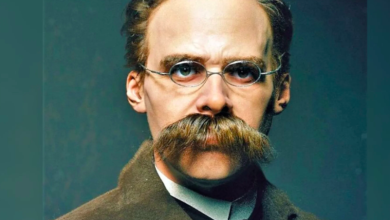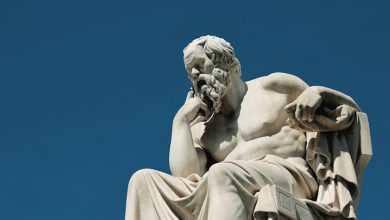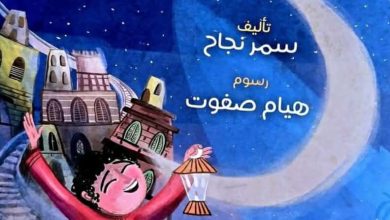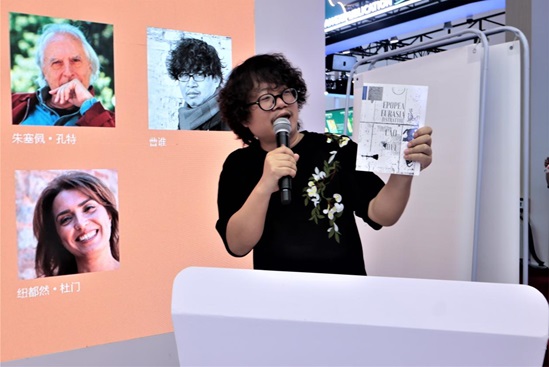
Chinese Poets Should Understand The Writing Styles Of Poetry From Various Countries Around The World, Not Just Western Works From One Hundred Years Ago .
(Speech At The Launch Ceremony Of “Golden Bird In The Sun” And The Copyright Export Ceremony Of “Epic Of Eurasia” At The 31st Beijing International Book Fair)
By Cao Shui
Nowadays is an era of world literature, and the poems that Chinese poets often talk about, such as Ezra Pound, T.S. Eliot, and Rainer Rilke, are all poems from a hundred years ago. This is the writing style from a hundred years ago and is only limited to Europe. We do not deny the classic nature of these poets, but we should pay more attention to contemporary poetry trends and the poetry of the wider five continents of Europe, Asia, Africa, America, and Oceania. This is also the starting point for my translation of contemporary poets from various countries around the world, which must be based on the works of active poets from different countries in contemporary times. Last year, I translated the Song of the Dream Land by Fernando Rendon, the great Latin American poet, and this year, I translated the Golden Bird in the Sun by Vadim Terekhin, the great Russian poet. This time, I signed the contract, including the Footsteps of Istanbul by the famous Türkiye poet Nurduran Duman, the Song of the Knight by the famous Italian poet Lamberto Garzia, and the Manseerah (Epic of Human) by famous UAE poet Adel Khozam. I thank Beiyue Literature and Art Publishing House for having such a great mind. We can continue to launch this translation series.
Chinese poets face two major obstacles when entering the world: language and thinking, which require a systematic understanding of world civilization. My Epic of the Eurasia has been translated into English by American poet George Wallace, into Italian by Italian poet Lamberto Garzia, and is currently being translated into Spanish by Cuban poet Yasef Ananda and Chilean poet Roberto Aedo. Egyptian poet Ashraf Aboul Yazid is also translating into Arabic, and translations into Russian, Korean, and Bengali are also under negotiation. Because this book is not an epic of a nation, but an epic of the Eurasian continent, the birthplace of human civilization. It aims to narrate the history of humanity from Babylon, westward to Canaan, Egypt, Greece, eastward to Persia, India, and China, with the theme of ‘humanity is of the same origin, the world will go to the same place’. We need to reintegrate Chinese civilization into the entire world civilization system, which is the civilization of all mankind. World civilization is like a big tree. Babylon, Persia, India, China, Canaan, Egypt, and Greece are the seven roots that grow together to form this towering tree of world civilization. Only by understanding world civilization in such a structure can poets of all humanity “share emotions” and “cultural transformation” come naturally. Poets from all over the world will actively participate, and the construction of world literature in the future will be built on this basis.
In the era of Internet and globalization, the “world literature” put forward by Goethe, the great German poet, in 1827 is accelerating to take shape. Poets from all over the world are becoming more and more a whole. In reality, it is the “World Poetry Movement”. This was co founded by Fernando Rendon, an outstanding poet from Colombia and president of the Medellin International Poetry Festival, and poets from around the world at the 2011 Medellin Poetry Festival. They published the “Manifesto of the World Poetry Movement,” aiming to unite the world through poetry. In 2017, I joined this movement through Nurduran Duman, a Türkiye poet, and communicated with more than 100 famous poets around the world through e-mail. We formed a poetic school of “World Poetry Movement” through creation, translation, publication and discussion. My first poetry collection published in Italy, “The Flowers of the Empire,” won four international awards: the Apollo Dionysus Poetry Award at the 8th Rome International Academy of Contemporary Poetry and Art in Italy, the 27th Italian “Octopus Bone” International Poetry Award, the 8th Italian Giovanni Bertacchi International Poetry Award, and the 14th Guido Gozano Apple Orchard International Poetry Award. Subsequently, 10 books including “Epic of the Eurasian Continent”, “Listening to the World’s Heartbeat in Istanbul”, “Love of the World”, and “Song of the Tower of Babel” were published successively, and 20 international awards were won, including the 12th Golden Knight Award in Russia, the International Literature Award “Dr. Jose Manuel Equihua Estrella” in Mexico, the Najib Aman International Literature Award in Lebanon, the World Golden Pen Award in South Korea, the Bikesh Literature Award in Bangladesh, the Nago Ahmed Poetry Award in Egypt, the BRICS Creator Medal in Russia, and the UNESCO World Excellence Award. To integrate into world literature, one should write, comment, publish, publish, and win awards with them, just like domestic literature. The most important thing is to truly integrate the content and form of the works into the world literary world.
Today’s world is not the China of the Han and Tang dynasties, but the Earth of the globalization era. Chinese culture is only a component of world civilization, which we have to accept and respond to. The current civilization has developed from the seven major civilizations that once spanned the Eurasian continent, from Babylon to Persia, India, and China in the east, and to Judah, Egypt, and Greece in the west. Only by tracing back to this root can we integrate into the entire world civilization, and then integrate the ancient and present cultures, integrate West and East cultures, integrate sacred and secular cultures, create a unique civilization, and lead the world civilization again. Eastern and Western civilizations rise and fall like a seesaw. Chinese civilization once led the world civilization in the feudal era, but we have to admit that now Western civilization has become the mainstream of global civilization. Chinese poets should have the ability to write about the entire world, so that we can once again push the seesaw of world civilization to the East. Nowadays, Western centrism is widely distributed internationally, and there are also people in China who want to confront it with Eastern centrism. In fact, it is a diverse world now, and I advocate for the cosmopolitanism of Eastern and Western polycentrism.
Finally, let me tell you a story about the Tower of Babel. Initially, humans wanted to build a tower to the Heaven, ie. Tower of Babel, but after God knew about it, he was afraid of affecting his authority and disrupted human language. As a result, people stopped building it because they couldn’t communicate and scattered around the world to form ethnic groups. This is a metaphor, which comes from the Bible and similar myths in China’s Taiping Guangji. The biggest inspiration for me from this story is that when you break down the barriers between languages, the Tower of Babel will naturally form. If we can exchange ideas in English, Chinese, French, Russian, Spanish, and Arabic, then the Tower of Babel will be rebuilt. This is also an inspiration for me in the process of learning English. Why do I emphasize the importance of learning a foreign language? Only then can you pay attention to the meaning of your mother tongue again. This is also the implicit meaning of the Tower of Babel, so my another name is Master of Tower of Babel. The dream of rebuilding the Tower of Babel may take five hundred years to achieve, but we can reach the highest secret we pursue through the integration of literary creation. I would like to emphasize again in the end: today is an era of globalization, and we live on a planet in a global village. As Chinese poets, using this language from the Milky Way, we should have the ability to write about the world! (End)
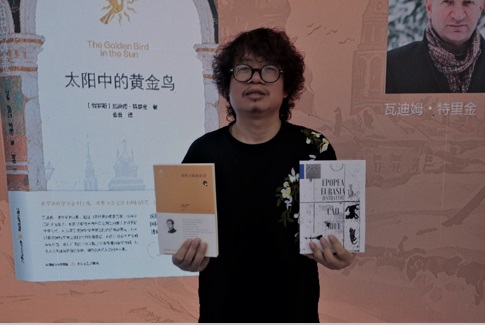
Biography of Cao Shui
Cao Shui(Chinese: 曹谁;pinyin: Cáo Shuí), also Shawn Cao (born in Jun 5, 1982), is a Chinese poet, novelist, screenwriter and translator. He is a representative figure of Chinese Contemporary Literature. He leads the Great Poetry Movement, Poetry Film Movement and Dramatizing Fiction Movement. In his “Manifesto of Great Poetry”, he aims to integrate sacred and secular cultures, oriental and occidental cultures, ancient and modern cultures in Chinese literature. In 2008, he resigned from a newspaper and traveled around Tibet and Xinjiang, which is the center of Eurasia or the World in his view. His novels Secret of Heaven trilogy tells the whole developing history of human civilization. His most notable works includes Epic of Eurasia, the already mentioned trilogy and King Peacock (TV series). In his works, he extracts elements of various ancient human civilizations, from Babylon to the west to Judea, Egypt, Greece, to the east to Persia, India, China, and uses these elements to reconstruct a new Utopian human homeland, which always described as Eurasia, the Top of the Tower of Babel or Kunlun Mountains (Heaven Mountains). So far fourty books of Cao Shui have been published, including ten poem collections, four essay collections, ten novels, twenty fairy tales, four translations and one hundred episodes TV series and films. He has won more than 50 literary awards worldwide, including the 1st Chinese Young Poet Award, the 4th Cao Yu Cup Drama Award, the Apollo Dionysus Award of the 8th Italian Rome International Academy of Contemporary Poetry and Art Award, the 12th Russian Golden Knight Award, and the Top Ten Public Figures of the 5th Chinese Poetry Spring Festival Gala, etc. His works have been translated into 30 languages, including English, Italian, Spanish, French, German, Swedish, Portuguese, Danish, Polish, Russian, Hungarian, Croatian, Slovenian, Turkish, Arabic, Japanese, Korean, Hindi, Nepali, Vietnamese, Greek, Bengali, Kazakh, Irish, Serbian, Kyrgyz, Albanian, etc. He has been invited to participate in the 30th Medellin International Poetry Festival, the 26th Havana International Poetry Festival, the 14th Kritya International Poetry Festival in India and the 4th Qinghai Lake International Poetry Festival. He is a member of China Writers Association, China Film Association and China Poetry Society. He is also chief editor of Great Poetry, deputy editor in chief of World Poetry, member of China Writers’ Association, Asian Coordinator of World Poetry Movement, Chinese Representative of BRICS Writers Association, secretary general of Boao International Poetry Festival, executive president of the Silk Road International Poetry Festival and Chairman of Beijing International Poetry Film Festival. Currently he lives in Beijing, and works as a professional writer, translator and screenwriter.

